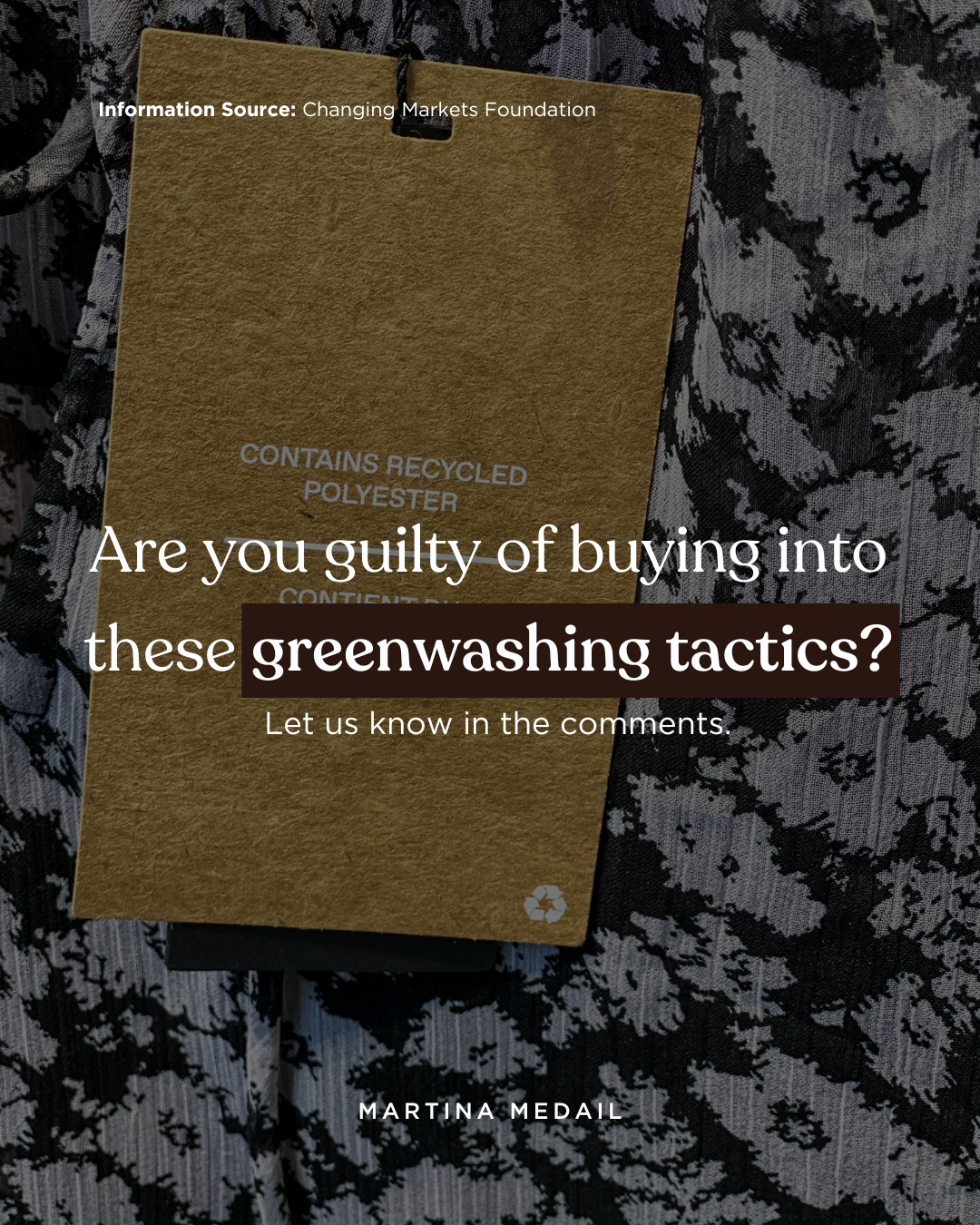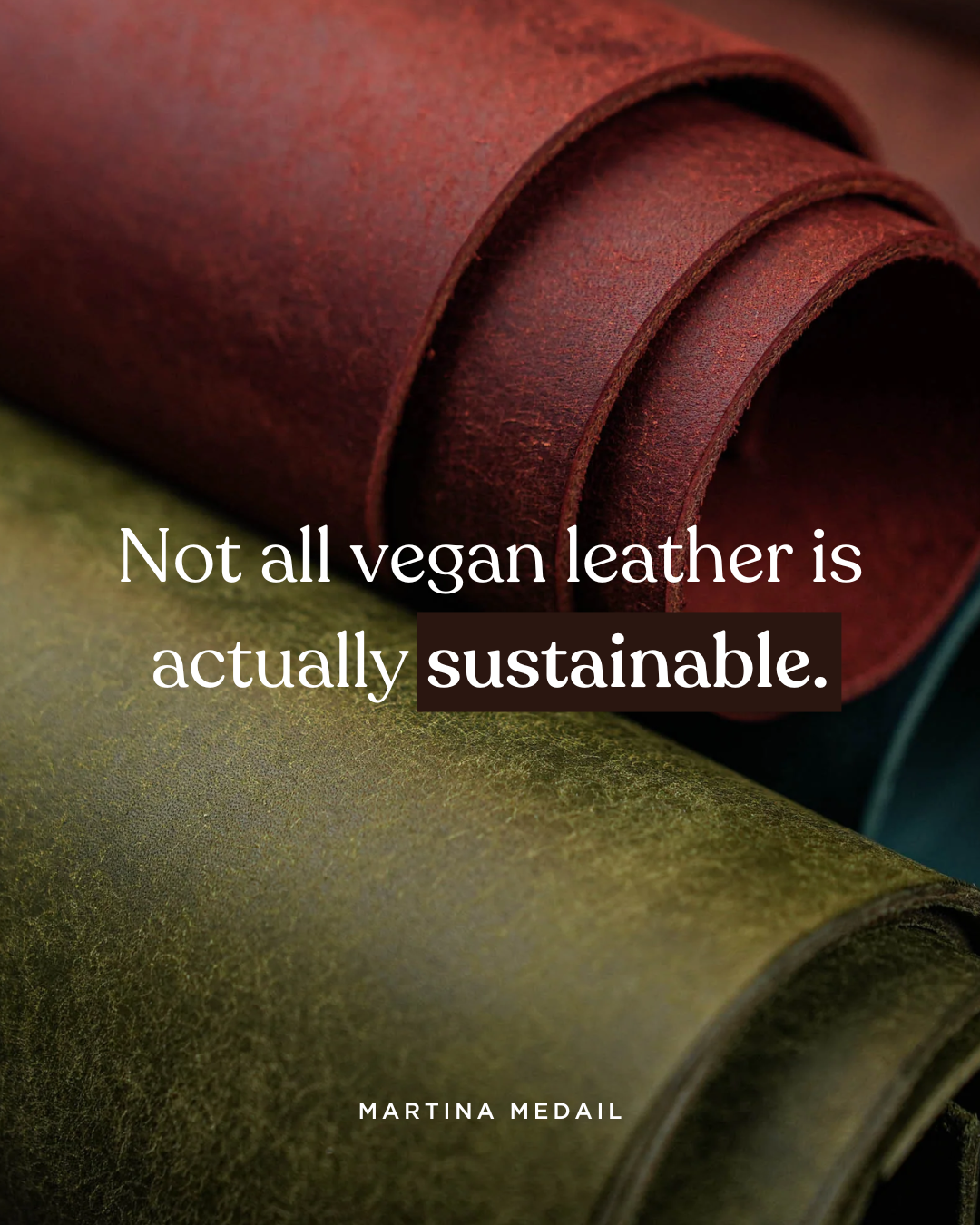
Are you being deceived by these 'sustainable' labels?
Are you truly being a sustainable consumer?
Sorry to burst your bubble but unfortunately, these products aren't as sustainable, as recycled or as eco-conscious as you may think, even if the precious tag say so. These are all just a product of greenwashing.
Greenwashing is when brands deceive consumers by presenting themselves as more sustainable they actually are. And trust us, this is more common than you think.
Over 60% of consumers are willing to pay more for products with sustainable packaging or labels. So, you can imagine why big companies are eager to capitalize on this growing demand.
Recycled? I think not.
"Recycled" Polyester is a false solution. 85% of brands rely on downcycled PET bottles to produce "recycled" polyester. This does not create a circular system, as these materials cannot be recycled back into new clothes-instead, they degrade and eventually become waste.
True sustainability means fibre-to-fibre recycling, which aims to turn discarded textiles into new, usable fibres yet no major brand has set clear targets to implement this.
A 2021 investigation into fashion brands sustainability claims analysed over 4,000 products from major companies. Over half of these claims (59%) were misleading or false.
Who are the culprits?
Many, but to name a few;
- H&M: Their "Conscious Collection" is marketed as a greener choice, yet it contains even more synthetic fires (72%) than their regular collection (61%).
- Patagonia: While Patagonia heavily promotes its use of ocean plastics, it has no clear plan to reduce overall synthetic fire reliance-meaning it continues to fuel the plastic crisis.
- Adidas: Frequently markets its use of recycled materials, yet synthetic fires still dominate most of its collections. While Adidas promotes products made from ocean plastics, this does nothing to address plastic production at the source -it's simply a delay tactic, not a real solution.
Be a skeptic.
If something reads like it is too good to be true, then it probably is. Any company can slap a "biodegradable" or "eco-friendly" label but these may have hidden conditions such as proper disposal or composting.
Buzzwords like “sustainable”, “socially responsible," or "recycled" don't always mean it's true. Always check for verified certifications before trusting these terms!
Look for certified eco-labels.
Eco-labels like Fairtrade, B Corporation, Green Seal, and Safer Choice are trustworthy indicators. These show the product meets international standards.
If you don't recognize a label, research it online. Use websites like Ecolabel Index to confirm its legitimacy.
Research.
If it just says "good for the planet" with no explanation, it's likely greenwashing.
Check the company's website for proof of their green efforts. Finding their green practices shouldn't be difficult if they're truly what they say they are.
Are you guilty of buying into these greenwashing tactics?
Let us know in the comments.


Leave a comment
This site is protected by hCaptcha and the hCaptcha Privacy Policy and Terms of Service apply.